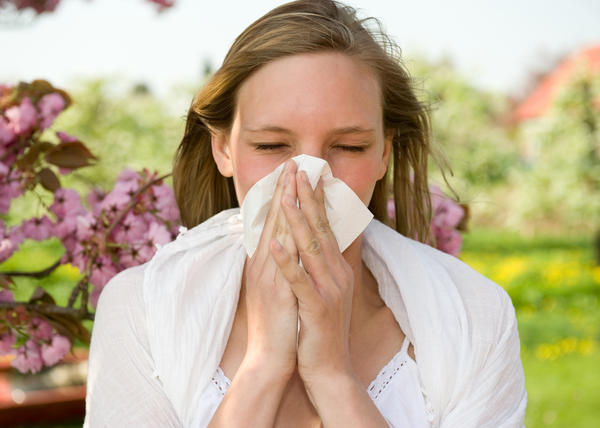What is Hay fever?
Hay fever is when you have intermittent allergic rhinitis (or inflammation of the nose). Hay fever is caused by an allergic reaction after exposure to airborne allergens, including pollen and fungal spores.
Did you know that hay fever could affect as many as one in 5 children or young adults and males are more likely than females to suffer?
Most people associate hay fever with springtime, it can appear at any time of the year, depending upon what particular factors trigger it off.
What is the cause of hay fever?
Hay fever is triggered by exposure and sensitisation to airborne allergens (pollens in the air), which induce an allergic reaction. Most people with hay fever are sensitised through repeated exposure to many different pollen species. Once an individual is sensitised, even non-specific triggers or small amounts of allergen can cause a rapid allergic response and severe symptoms.
Pollens of wind-pollinated plants are the predominant triggers. Pollens that are produced by Northern Hemisphere grasses, tree and flowering weed species tend to be the most troublesome pollens.
Did you know that irritants such as cigarette smoke and paint fumes can exacerbate rather than cause allergic rhinitis?
What are the symptoms of hay fever?
The usual hay fever symptoms are:
- Nasal itching, sneezing, runny nose
- Sinus related congestion, post nasal drip, headache
- Itchy eyes, red or teary eyes- symptoms of allergic conjunctivitis
Less common symptoms include block or painful ears, which may produce hearing difficulty and loss of balance. Some people may have irritating cough due to post-nasal drip.
The symptoms of hay fever are intermittent, lasting for less than four days a week, and tend to worsen with increased exposure to allergens. Symptoms are often more severe in the morning and evening when pollens count are highest, as well as when the whether are hot and humid.
How do I manage or treat hay fever?
Management or treatment of hay fever may involve:
- Allergen avoidance
- Over the counter medicines
- Immunotherapy – desensitisation
Allergen avoidance
Avoiding allergens is only possible if the associated allergen has been identified through allergy testing or repeated exposure. Allergens, such as pollens, are difficult to avoid but you can attempt to reduce exposure by remaining inside and keep all window closed when pollens count are known to be high. When driving in a car, close all windows and use re-circulated air. Shower and wash your hair after outdoor activities. Use a clothes dryer to dry washed bedding as this may reduce exposure to pollen deposits.
Over the counter medicines
The main treatment for hay fever is antihistamines that are available as tablets, syrup, nasal-spray and as eye drops. Antihistamines are effective in suppressing allergic reactions.
For more moderate to severe intermittent allergic rhinitis, and if nasal congestion is a predominant symptoms, intranasal corticosteroids (INCS) are also available. INCS are recommended as a second line therapy for mild hay fever if symptoms are not resolved with antihistamine. They are also safe to use during pregnancy and breast-feeding.
Oral decongestants (e.g. pseudoephedrine, phenylephrine) and nasal decongestants (e.g. oxymetazoline, phenylephrine, tramazoline) may also be used to reduce block nose related to allergic rhinitis.
Our friendly pharmacist can recommend the appropriate treatment of hay fever with over the counter medicines for you.
Immunotherapy-desensitisation
Through simple test such as skin test or blood test, allergens that are responsible for an individual’s allergic reaction can often be identified. It is possible to make mixture of the identified allergens and give tiny amounts in regularly increasing quantities, producing a type of immunity. Consult with your Doctor about immunotherapy.

